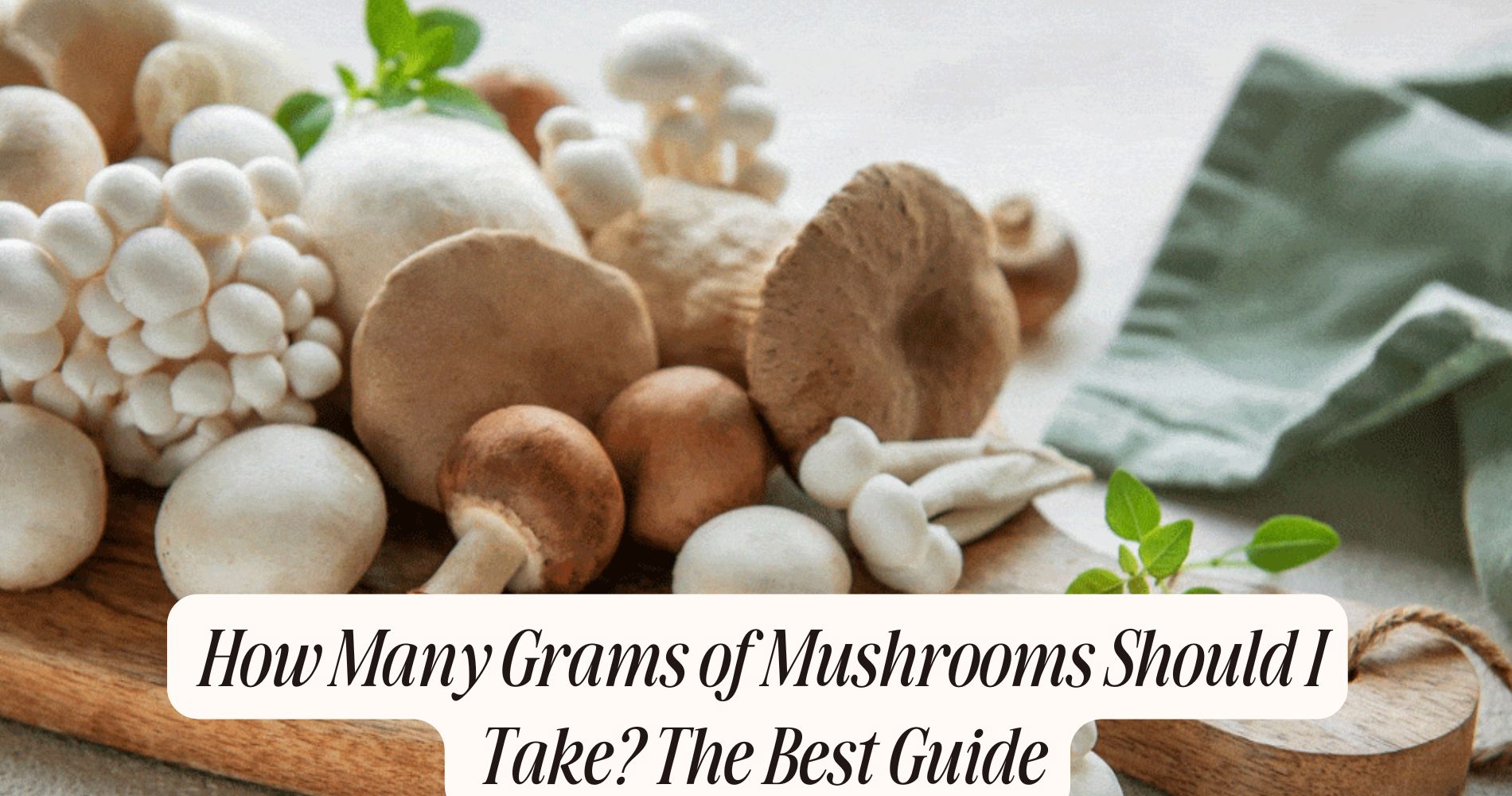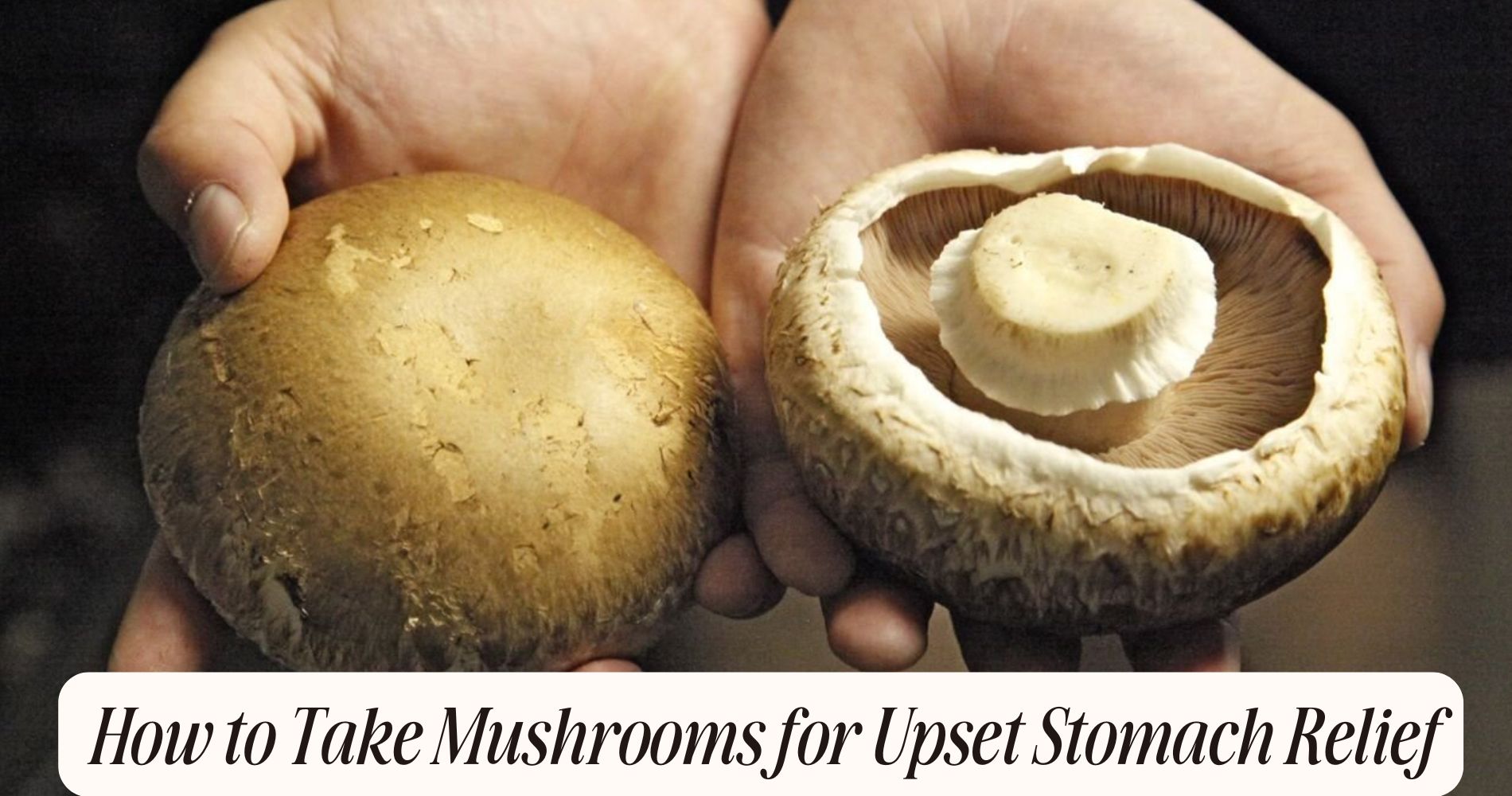
How Many Grams of Mushrooms Should I Take? The Best Guide
How many grams of mushrooms should i take? To determine the ideal grams of mushrooms to take, consider the type and purpose. For functional mushrooms, a standard dosage ranges from 1 to 3 grams daily, while microdosing involves 0.1 to 0.3 grams for subtle effects. Moderate doses of 1 to 2.5 grams can evoke noticeable experiences, whereas experienced users might opt for high doses of 2.5 to 5 grams or more. Factors such as personal tolerance, body weight, and mushroom potency also influence these dosages. To optimize your consumption and understand the unique properties of different species, you may want to explore further insights on the matter.
Understanding Mushroom Types
Understanding the diverse types of mushrooms is crucial for anyone considering their consumption for health or recreational purposes.
You'll find that mushrooms can be categorized into edible varieties and those with notable medicinal properties. Edible mushrooms, such as Agaricus bisporus (commonly known as button mushrooms) and Pleurotus ostreatus (oyster mushrooms), are widely consumed for their flavor and culinary versatility. They contain important nutrients like vitamins B and D, as well as minerals such as selenium and potassium.
On the other hand, certain mushrooms possess remarkable medicinal properties. For instance, Ganoderma lucidum, or reishi, has been used in traditional medicine for its immune-boosting effects and potential anti-cancer properties. Likewise, Lentinula edodes, or shiitake mushrooms, aren't only edible but are also recognized for their ability to lower cholesterol and support cardiovascular health.

When exploring mushroom types, you must consider both their culinary applications and health benefits.
Always verify that you can accurately identify mushrooms, as some may be toxic. By understanding these categories, you'll make informed choices about which mushrooms to include in your diet for either taste or therapeutic benefits.
Benefits of Mushrooms
Mushrooms offer a plethora of health benefits that can enhance your overall well-being. Their impressive nutritional value includes essential vitamins, minerals, and antioxidants, which contribute to various bodily functions. For instance, mushrooms are rich in B vitamins, such as riboflavin and niacin, which play a critical role in energy metabolism and maintaining healthy skin.
Additionally, the presence of minerals like selenium and potassium supports immune function and cardiovascular health.
Moreover, mushrooms are renowned for their medicinal properties. Certain varieties, like reishi and lion's mane, contain bioactive compounds that may bolster cognitive function and improve mood. Studies suggest that these compounds can promote nerve growth factor (NGF) production, which is essential for neuron health and function.
Furthermore, the anti-inflammatory and antioxidant effects of mushrooms can safeguard against chronic diseases, such as heart disease and diabetes. The unique polysaccharides found in mushrooms, particularly beta-glucans, have been shown to enhance immune response and potentially reduce tumor growth.
Incorporating mushrooms into your diet can therefore provide a multifaceted approach to health, leveraging their nutritional value and medicinal properties for ideal well-being.
Recommended Dosages
When determining the right amount of mushrooms to take, it's essential to take into account microdosing guidelines, standard dosage recommendations, and your individual sensitivity.
Each person's body reacts differently, so understanding these factors can help you tailor your experience for best effects.
Microdosing Guidelines
Microdosing involves taking a sub-perceptual dose of psychedelics, typically around one-tenth to one-twentieth of a standard recreational dose. This approach can enhance creativity, focus, and emotional well-being without inducing significant alterations in consciousness.
To effectively microdose, you'll want to evaluate various microdosing techniques, such as the "Fadiman Protocol," where you take a dose every three days, or the "Stamets Stack," which incorporates lion's mane mushrooms to support neurogenesis.
In terms of ideal schedules, many users find a pattern of one day on and two days off effective. This allows your body to integrate the effects while minimizing tolerance build-up. A typical microdose for psilocybin mushrooms would range from 0.1 to 0.3 grams, but individual responses can vary.
Start low, and gradually adjust your dosage based on your experiences and desired outcomes. Always keep a journal to track your mood, productivity, and any side effects, as this can help refine your approach.
Standard Dosage Recommendations
Determining the appropriate dosage for psilocybin mushrooms is vital for achieving the desired effects while minimizing potential risks. Standard dosage calculations typically categorize dosages into three main levels: microdoses, moderate doses, and high doses.
For microdosing, most recommended practices suggest 0.1 to 0.3 grams of dried mushrooms. This aims to enhance cognitive function without significant psychedelic effects.
For moderate doses, where you might experience noticeable effects, 1 to 2.5 grams is generally recommended. This amount often leads to a more pronounced psychedelic experience, making it important to approach with caution.

High doses, usually ranging from 2.5 to 5 grams or more, are reserved for experienced users seeking profound experiences.
It's important to acknowledge that these recommended practices serve as general guidelines, and individual reactions can vary. As a result, sticking to these standard dosage calculations can help prevent overwhelming experiences while still allowing you to explore the potential benefits of psilocybin mushrooms.
Always verify you're in a safe environment and consider keeping a journal to track your experiences, which can aid in fine-tuning your future dosages.
Individual Sensitivity Considerations
Individual sensitivity to psilocybin can greatly influence how different dosages affect you. Your body chemistry, psychological factors, and previous experiences with psychedelics all play significant roles in determining your individual reactions. For instance, some individuals may experience heightened sensitivity, requiring lower doses to achieve desired effects, while others may need higher quantities to feel similar outcomes.
When considering dosages, it's important to assess your mental state prior to consumption. Anxiety, stress, or unresolved psychological issues can amplify negative experiences, regardless of the dose. Conversely, a stable mindset can enhance the positive aspects of the experience, allowing you to integrate the insights gained.
Typically, microdoses range from 0.1 to 0.3 grams, while moderate doses can be between 1 to 3 grams. However, these ranges mightn't be suitable for everyone.
Start low and gradually increase your dosage, paying attention to your body's responses. Keeping a journal of your experiences can help you track your individual reactions and refine your approach over time.
Factors Influencing Dosage
When determining the appropriate dosage of mushrooms, it's essential to evaluate your individual tolerance levels, as these can vary considerably from person to person.
Additionally, the species of mushroom you choose plays an important role, as different types contain varying concentrations of active compounds.
Finally, your desired effects and goals will further influence the dosage, requiring a tailored approach to achieve best results.
Individual Tolerance Levels
Your body's unique chemistry plays an essential role in how you respond to mushrooms, particularly those containing psilocybin. Individual tolerance levels can vary greatly based on factors such as metabolism, body weight, and psychological state.
For instance, if you have a fast metabolism, you might process psilocybin more quickly, affecting your experience and how long it lasts.
Tolerance testing is important for understanding your own limits. By starting with a low dose and gradually increasing it based on your personal experiences, you can identify the best amount for you.
Keep in mind that frequent use can lead to increased tolerance, requiring higher doses to achieve similar effects. This phenomenon underscores the significance of spacing out your sessions to maintain sensitivity.
Additionally, psychological factors, like your current mood or stress levels, can influence how mushrooms affect you. If you're feeling anxious, you might be more susceptible to intense experiences, even at lower doses.
As a result, it's essential to take into account both your physical and mental state when determining your dosage. Always approach mushroom consumption with caution and respect for your unique tolerance levels.
Mushroom Species Differences
Different species of mushrooms can have a significant impact on the dosage needed to achieve desired effects. Understanding mushroom taxonomy is vital because it helps classify species based on their genetic relationships and psychoactive compounds.
For instance, Psilocybe cubensis, one of the most commonly used species, contains higher concentrations of psilocybin and psilocin, the primary psychoactive compounds responsible for their effects. In contrast, species like Psilocybe semilanceata may have different levels of these compounds, requiring a different dosage to reach similar effects.

Moreover, the potency of mushrooms can vary widely even within the same species, influenced by factors such as growing conditions, age, and harvesting methods. This variability means that a standard dosage can't simply be applied across the board.
As you explore different species, you'll find that your experience can drastically change based on the specific mushroom type and its chemical composition. As a result, it's important to research the particular species you're considering, as this knowledge will guide you in determining an effective dosage while ensuring safety and efficacy.
Always approach your dosage with caution, especially when experimenting with unfamiliar species.
Desired Effects and Goals
How do your desired effects and personal goals influence the dosage of mushrooms you should take? Understanding your intended outcomes is vital for effective goal setting. The effects of mushrooms can vary greatly based on dosage; therefore, you need to be clear about what you aim to achieve.
If you're seeking mild effects, such as enhanced creativity or improved mood, a lower dose of around 1 to 2 grams might suffice. In contrast, if you're aiming for deeper introspection or a profound spiritual experience, you might consider a higher dosage, typically in the range of 3 to 5 grams.
It's also essential to acknowledge individual factors, including body weight, experience level, and mental health status, as they all play a role in how mushrooms affect you. For instance, someone with prior experience may require a different dosage to achieve similar effects compared to a novice.
Ultimately, aligning your dosage with your desired effects requires careful consideration. By understanding your personal goals and adjusting your dosage accordingly, you can optimize your experience with mushrooms while minimizing potential discomfort or adverse effects.
Fresh vs. Dried Mushrooms
Choosing between fresh and dried mushrooms can greatly affect both the dosage and the overall experience. Fresh mushrooms generally contain a higher water content, which dilutes their psychoactive compounds. This means you might need to consume a larger quantity to achieve similar effects as dried mushrooms.
On the other hand, fresh mushrooms offer some unique benefits. They retain more of their natural nutrients and enzymes, which can enhance the overall experience and might contribute positively to your mood and well-being.
Dried mushrooms, in contrast, are more potent due to the removal of moisture, concentrating their active compounds. This makes dried mushrooms a popular choice for those seeking specific doses in a more manageable form. The drying process also extends shelf life, making them easier to store and transport.
However, it's important to recognize that the potency can vary markedly between different strains and drying methods.
Ultimately, your choice should align with your goals and preferences. If you prefer the taste and texture of fresh mushrooms, you may need to adjust your dosage accordingly. If you're focused on potency and convenience, dried uses might be your best bet.
Cooking and Preparation Tips
Cooking mushrooms effectively enhances their flavor and nutritional value while also influencing their psychoactive properties. To maximize these benefits, employing proper sautéing techniques is crucial.
Start by choosing the right type of fat, such as olive oil or butter, which can enhance the overall flavor profile. Preheat your pan to medium-high heat to guarantee even cooking and to develop a rich, caramelized exterior.
When sautéing, slice your mushrooms uniformly to promote even cooking. Avoid overcrowding the pan, as this can lead to steaming rather than browning. Stir occasionally, allowing the mushrooms to release their moisture and develop deeper flavors.

Consider flavor pairings that complement your mushrooms. Garlic, thyme, and shallots work beautifully, enhancing both taste and aroma. Experimenting with acidic elements, like lemon juice or balsamic vinegar, can also elevate the dish by balancing the umami notes inherent in mushrooms.
Remember that cooking time can affect the psychoactive properties of certain mushrooms. Gentle sautéing preserves the active compounds better than high-heat methods.
Ultimately, by mastering these techniques, you can create delicious dishes while optimizing the effects of your mushroom intake.
Safety and Side Effects
Safety is paramount when consuming mushrooms, particularly those with psychoactive properties. Understanding the risks associated with mushroom toxicity is essential. Not all mushrooms are safe for consumption; some contain potent toxins that can lead to severe health issues or even death.
For instance, species like the Amanita phalloides, commonly known as the death cap, can cause liver failure if ingested. Always verify you're sourcing mushrooms from reputable suppliers to avoid toxic varieties.
Additionally, allergic reactions can occur, even with seemingly benign mushrooms. Symptoms may include skin rashes, gastrointestinal distress, or respiratory issues. If you have a known allergy to other fungi, it's wise to approach mushroom consumption with caution.
Moreover, the psychoactive effects of certain mushrooms can lead to unexpected psychological reactions, including anxiety or paranoia, especially in individuals with pre-existing mental health conditions.
To mitigate risks, start with a small dose and monitor your body's response. Always consult a healthcare professional if you're unsure about potential interactions with medications or underlying health issues.
Prioritizing safety guarantees a more enjoyable and beneficial experience with mushrooms.
Integrating Mushrooms Into Diet
Mushrooms can play a versatile role in your diet, offering not only unique flavors but also a wealth of nutritional benefits. By incorporating various mushroom varieties, like shiitake, oyster, and portobello, you can enhance your meals with rich textures and umami notes. These fungi are low in calories yet packed with vitamins, minerals, and antioxidants, making them an excellent addition to any dietary plan.
To achieve effective dietary integration, consider using mushrooms in different culinary applications. For instance, you can sauté them with vegetables, blend them into soups, or even use them as a meat substitute in burgers. The polysaccharides found in mushrooms may also support immune health, while their fiber content contributes to digestive wellness.

Start by experimenting with small quantities, gradually increasing your intake to determine what works best for you. Aim to include mushrooms in your meals a few times a week to reap their benefits consistently.
Remember that the key to successful dietary integration is variety, so don't hesitate to explore the vast range of mushroom options available. This approach not only diversifies your palate but also maximizes the health benefits you receive.
Consulting With Professionals
When incorporating mushrooms into your diet, consulting with nutrition professionals can provide valuable insights tailored to your individual health needs. These experts can evaluate your dietary preferences, health conditions, and specific goals, offering personalized recommendations.
Mushrooms, particularly functional varieties like lion's mane or reishi, have unique properties that may affect individuals differently. An expert consultation allows you to understand potential benefits, such as cognitive enhancement or immune support, while also addressing any contraindications or interactions with medications you may be taking.
Professional advice is essential, especially if you're considering mushrooms as a supplement rather than just a food. A registered dietitian or a qualified nutritionist can help you determine the appropriate dosage, ensuring you receive maximum benefits without adverse effects. They can also guide you in selecting the right types of mushrooms based on your health profile and dietary needs.
Ultimately, integrating mushrooms into your regimen should be an informed decision. By seeking professional guidance, you can confidently navigate the complexities of mushroom consumption and maximize its advantages for your overall well-being.
Don't underestimate the value of expert consultation; it's an investment in your health.
Simplify Your Mushroom Intake with SUPER MUSHROOM GUMMIES
If you’re wondering "How many grams of mushrooms should I take?" and want a hassle-free alternative, Well Gummies' SUPER MUSHROOM GUMMIES are the perfect solution. Each gummy is precisely crafted with a blend of 10 functional mushroom types, delivering immune support, enhanced focus, and steady energy—all in a convenient chewable form. With a fresh wild berry flavor, they’re as tasty as candy and eliminate the need for weighing or measuring. Enjoy the powerful benefits of mushrooms effortlessly with SUPER MUSHROOM GUMMIES!
Frequently Asked Questions
Can I Overdose on Mushrooms?
You can't technically overdose on mushrooms, but individual tolerance varies. Safe consumption involves understanding your limits and starting with low doses. Always prioritize safety and be mindful of your body's response to the substance.
Are There Specific Mushrooms for Beginners?
As a beginner, you should consider safe varieties like psilocybe cubensis. These mushrooms are generally easier to manage, providing a gentler experience. Always prioritize safety, research thoroughly, and consult knowledgeable sources before trying any mushrooms.
How Long Do Mushrooms Stay Fresh?
Mushrooms typically stay fresh for about one week when stored properly. To maximize mushroom shelf life, keep them in a breathable container in the fridge, avoiding moisture, which accelerates spoilage. Fresh mushroom storage is essential for quality.
Can I Mix Different Types of Mushrooms?
You can mix different types of mushrooms, but be cautious. Mushroom combinations can lead to varying effects, and mixing them may enhance or alter your experience, depending on their individual properties and compounds. Always research beforehand.
What Are the Signs of a Bad Mushroom?
When identifying bad mushrooms, look for discoloration, unusual odors, and a slimy texture. These signs often indicate mushroom toxicity. Always research specific species to guarantee safe consumption and avoid potential health risks associated with toxic varieties.
Conclusion
In summary, determining the right dosage of mushrooms depends on various factors including the type, your health status, and intended effects. Fresh and dried varieties differ in potency, so accurate measurement is essential. Always consider consulting a healthcare professional before integrating mushrooms into your diet, especially if you're new to them or have underlying health conditions. By being mindful of dosage and preparation, you can safely enjoy the numerous benefits mushrooms have to offer.




